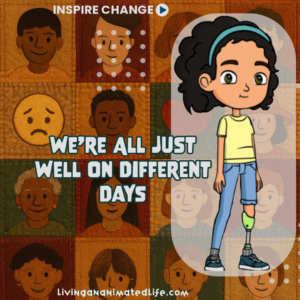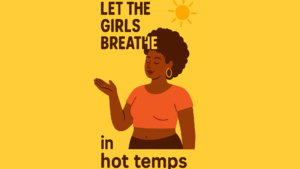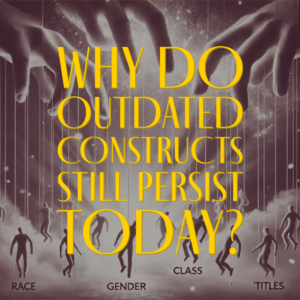After experiencing multiple disappointments throughout life, whether it was family-oriented—thinking that since blood is thicker than water, these folks are supposed to be a certain way—and finding out firsthand from a very early age that wasn’t true, I started seeing a pattern. I went on to acquire friendships and realized the same thing. And let’s not even talk about romantic relationships 💔, where the lesson of disappointment was driven home yet again. But the ultimate realization came when I experienced this with the child I brought into the world 👩👧👦.
Of course, we can’t leave out the commercial side of life. As a consumer, I have been repeatedly let down by businesses, whether it was poor craftsmanship 🔨, bad customer service ☎️, or both. Somewhere along the way, I came to the full-on conclusion that if I did not attach expectations to any of these relationships, I would never be disappointed.
So, I adjusted. I do my best to limit who I interact with in all of these arenas. I do what I have to do. I limit the businesses I engage with, and I keep my personal circle small 🛑. Yet, even with this mindset in place for years, I recently found myself in a situation that tested it. While helping a friend with a move 📦, the actions (or lack thereof) of all parties involved kept bringing disappointment. It made me sit down and meditate 🧘🏾♀️ on this concept because I truly believe that the only thing I can hope to control is my emotions. I know for a fact that I cannot control outside circumstances. I also know that keeping my feelings and actions balanced ⚖️ is a lifelong journey.
During my meditation, I pondered this: Shouldn’t lowered expectations free me from disappointment? Here is where I am at.
Hope vs. Expectation: The Key Difference 🤔
Before we dig deeper, let’s clarify the distinction between hope and expectation:
- Hope is a desire for something to happen but with no certainty attached.
Example: “I hope my friend remembers my birthday.” 🎂 - Expectation is a belief that something will or should happen.
Example: “I expect my friend to remember my birthday because they always have.” 🎁
Hope leaves room for flexibility. Expectation, especially when rigid, can lead to frustration when reality doesn’t match up.
The Pros of Having Low or No Expectations 🌱
✔ Less Disappointment: If you don’t expect much, you won’t feel as let down when things don’t go your way.
✔ Emotional Resilience: You’re less likely to be thrown off balance by life’s surprises.
✔ Openness to Possibilities: Without fixed expectations, you may be more accepting of different outcomes.
🔹 Example: You go on a first date with no expectations. Instead of being upset if there’s no chemistry, you simply enjoy the experience for what it is. 💑
The Cons of Having Low or No Expectations ⚠️
❌ Accepting Less Than You Deserve: If you expect little from people, you might tolerate behavior that isn’t okay.
❌ Cynicism & Detachment: Constantly lowering expectations can make you disengaged and uninterested in relationships or opportunities.
❌ Lack of Boundaries: If you assume people won’t follow through, you might stop holding them accountable.
🔹 Example: If your employer promises a raise but you expect nothing, you might never advocate for yourself and end up undervalued. 💰
When Expectation Is Justified: The ‘Supposed to Be’ Factor 💡
Not all expectations are unrealistic. Some are based on agreements, responsibilities, or social norms. In these cases, disappointment isn’t just about personal desire—it’s about fairness.
🔹 Example:
- If a friend says, “I’ll call you tomorrow,” it’s fair to expect that call. 📞
- If a job promises a raise after six months, expecting that raise is reasonable. 💵
- If a parent tells a child they’ll be at their recital, it’s not just an expectation—it’s a commitment. 🎭
When expectations are tied to promises, responsibilities, and ethical behavior, lowering them too much can lead to letting others off the hook.
The Middle Ground: Managing Expectations Without Losing Hope ⚖️
Instead of setting yourself up for either crushing disappointment or complete indifference, try these strategies:
🌟 Prepare for Different Outcomes: Expect the best but acknowledge that things don’t always go as planned.
🌟 Communicate & Hold People Accountable: If someone says they’ll do something, remind them or address it if they don’t follow through.
🌟 Detach Emotionally from the Outcome: Expect reliability, but don’t take it personally when things don’t work out.
🌟 Set Realistic Standards: It’s okay to have expectations—just make sure they’re fair and not rooted in assumptions.
Final Thoughts & Call to Action 📢
Having no expectations can prevent disappointment, but it can also prevent fulfillment. The goal isn’t to lower your standards so much that nothing matters—it’s to hold expectations loosely and adjust as needed.
Next time you find yourself feeling disappointed, ask:
👉 Was this expectation based on reality or assumption?
👉 Did I communicate my needs clearly?
👉 Is there a lesson here that can help me manage expectations better in the future?
💬 Let’s Talk! Do you believe it’s better to have no expectations, or do you think they are necessary for healthy relationships and goals? Share your thoughts in the comments! ⬇️









Good writing and some excellent lessons to live by.
Thank you. I take it one day at a time, as situations present themselves. Some reactions are better than others, but they definitely get better and better over time. I appreciate you reading the blog and commenting. Did you see the YouTube video for the blog https://www.youtube.com/watch?v=ARKAVczUjwc